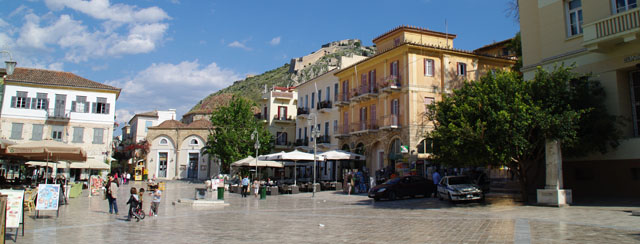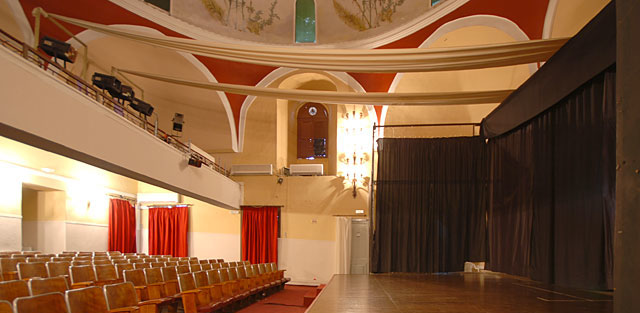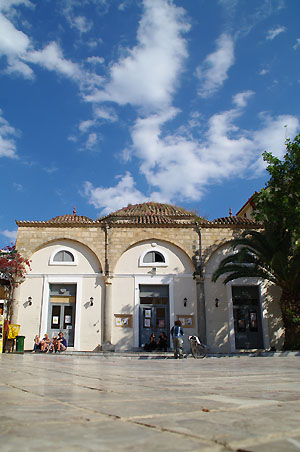The "Trianon"
|
The building which is known today as the 'Trianon', from the name of the cinema which was housed here, is of special interest, as much for its architectural design as for its history. It is the oldest mosque still surviving in the city and was strongly influenced by Byzantine church architecture. It dates from the time of the first Turkish occupation, probably the second half of the 16th century, and is possibly the only building in the city to survive from that time. It differs from the great mosque in Syntagma Square, the Parliament, as in the latter the Ottoman style of architecture seems to have taken over. The old mosque is square and is topped with a semi-circular dome. The entrance was formed by a colonnade, covered by three small domes, but during a later stage of building, the colonnade was walled up, obviously to widen the interior. In time a section of the base of the building was buried. |
|
|
|
During the time of the second Venetian occupation, the mosque was used for Catholic worship, and has been identified, with some degree of certainty, with Saint Antonio of Padua. It was donated by the Venetian General-in-Chief Francesco Morosini to the Franciscan order in 1687, when the city was occupied by the Venetian Republic. |
||
 |
||
| From 1828 to the beginning of 1833, the 'Allilodidaktiko Boys School', was housed here: the name means that in this school teaching was carried out by the most competent students, the so-called 'Protoscholoi' or monitors.
For many years the 'Trianon Cinema' was here, while more recently the old mosque has housed the Nauplion Municipal Theatre. |
||
 |
||
|
The exact location of the ''Trianon'' can be found in Section Map. |
||



